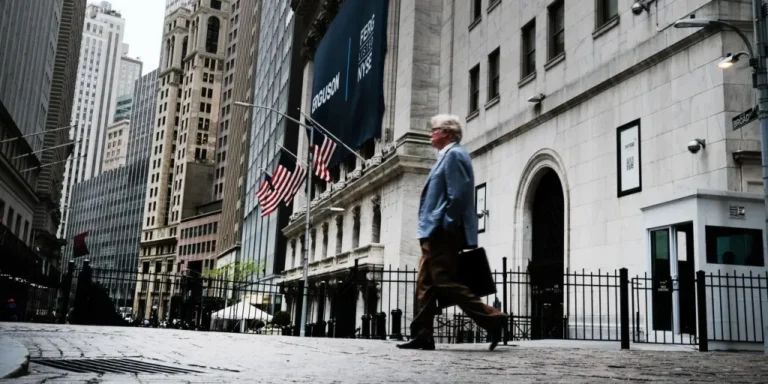Stocks fluctuated on Wednesday after the major averages made a failed attempt at a bounce in the previous session, and as the market prepares to close out the worst first half of the year since 1970.
The Dow Jones Industrial Average finished the day up 82.32 points, or 0.27%, to 31,029.31, while the other benchmarks closed slightly in the red. The S&P 500 slipped 0.07% to 3,818.83, and the tech-heavy Nasdaq Composite inched lower by 0.03% to 11,177.89.
Investors continued their search for the bottom of a vicious market sell-off as the second quarter comes to an end Thursday. Concern over a slowing economy and aggressive rate hikes consumed much of the first half of 2022, and fears of a recession are rising.
“We expect significant volatility this summer, with ‘face-ripping’ short-covering rallies followed by economically-inspired market slumps,” Wells Fargo senior equity analyst Christopher Harvey said in a note Wednesday. “While a much anticipated market ‘washout’ could catalyze a more sustained move higher, we think the market will not sustain a rally until it believes the Fed will toggle from a 50-75bp tightening to a more mundane 25bp increase.”
The S&P 500, which is down about 20% in 2022, is on pace for its worst first half of the year since 1970, when the index lost 21.01%. Meanwhile, on a quarterly basis, both the Dow and S&P 500 are on track for their worst performance since 2020. The Nasdaq is headed toward its worst three-month period since 2008.
On Wednesday, General Mills shares rose about 6.4% after the company topped earnings and revenue forecasts for its most recent quarter.
Shares of Goldman Sachs added nearly 1.3% after Bank of America upgraded them to a buy and said the bank will thrive even in an economic slowdown.
Amazon gained 1.4% after JPMorgan reiterated its overweight rating on the stock and Redburn initiated it at a buy. Meta Platforms was up 2%, while Apple and Microsoft gained more than 1% each.
Meanwhile, chipmakers led declines after Bank of America downgraded several chip stocks due to rising competition. Teradyne fell 5.2%. Advanced Micro Devices and Micron each lost more than 3%.
Carnival slid 14.1% after Morgan Stanley cut its price target on the stock roughly in half and said it could potentially go to zero in the face of another demand shock. The call dragged other cruise stocks lower. Royal Caribbean and Norwegian Cruise Line Holdings fell about 10.3% and 9.3%, respectively.
Bed Bath & Beyond shares plummeted roughly 23.6% after the company posted a huge miss on quarterly earnings and revenue expectations and announced its CEO is stepping down.
On Wednesday, Federal Reserve Bank of Cleveland President Loretta Mester said she will advocate for a 75 basis point hike to interest rates at the central bank’s July meeting if economic conditions remain the same by then.
“I haven’t seen the kind of numbers on the inflation side that I need to see in order to think that we can go back to a 50 increase,” she told CNBC.
Wednesday’s moves followed steep losses for the major averages the day before. The benchmarks all started the session with strong gains, but disappointing consumer confidence data halted those advances and sent stocks tumbling.
“The overwhelming mentality remains gloomy, with most people just trying to avoid bear-market rallies, convinced the SPX has several hundred points of further downside over the coming months,” wrote Adam Crisafulli of Vital Knowledge, in a note.
Although investors are expecting continued volatility and negative earnings revisions, Leuthold Group’s Jim Paulsen said that underneath the turbulence, financial markets have been “essentially restored to normal.”
“The fight against runaway inflation is intense, and recession fears are rampant,” he wrote in a note Wednesday afternoon. But “financial markets have been substantially revalued, with the S&P 500′s P/E ratio now below average and the 10-year Treasury at an above-average real yield.”

Odyssey has been the lead content writer and content marketer. He has vast experience in the field of writing. His SEO strategies help businesses to gain maximum traffic and success.

